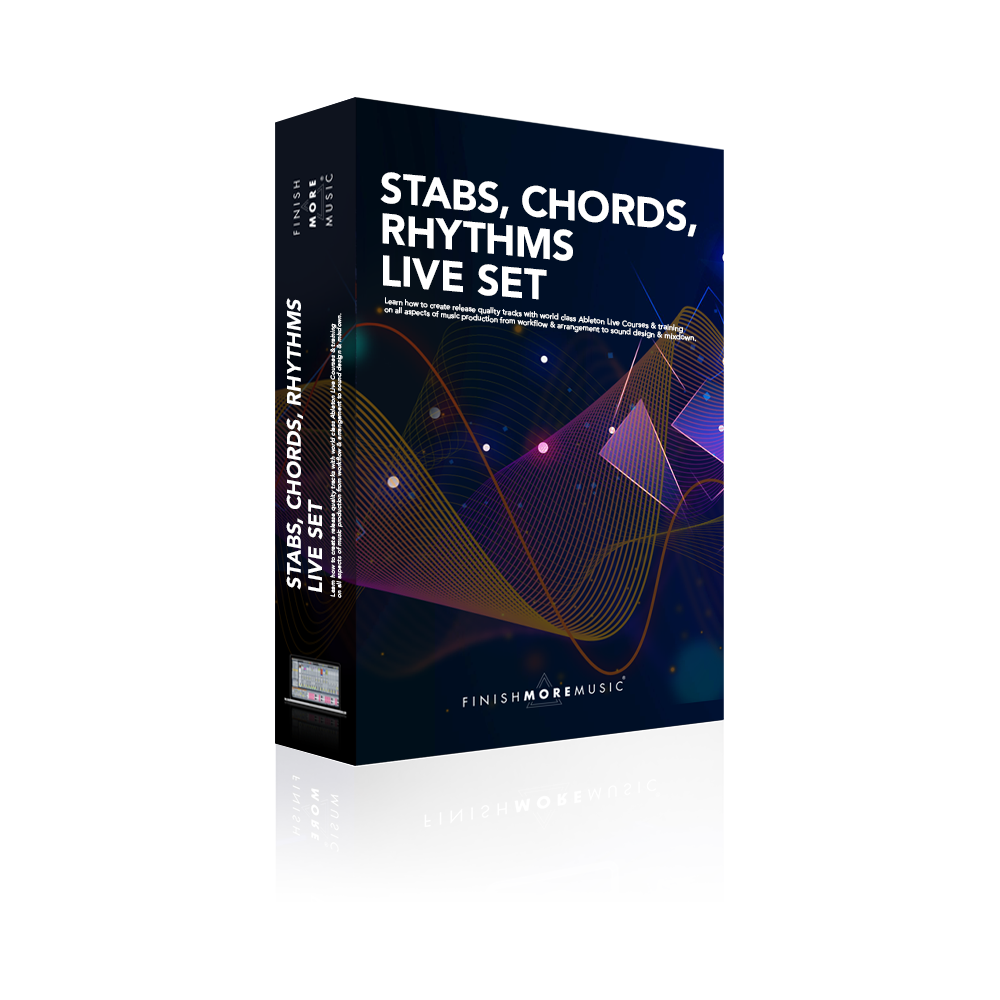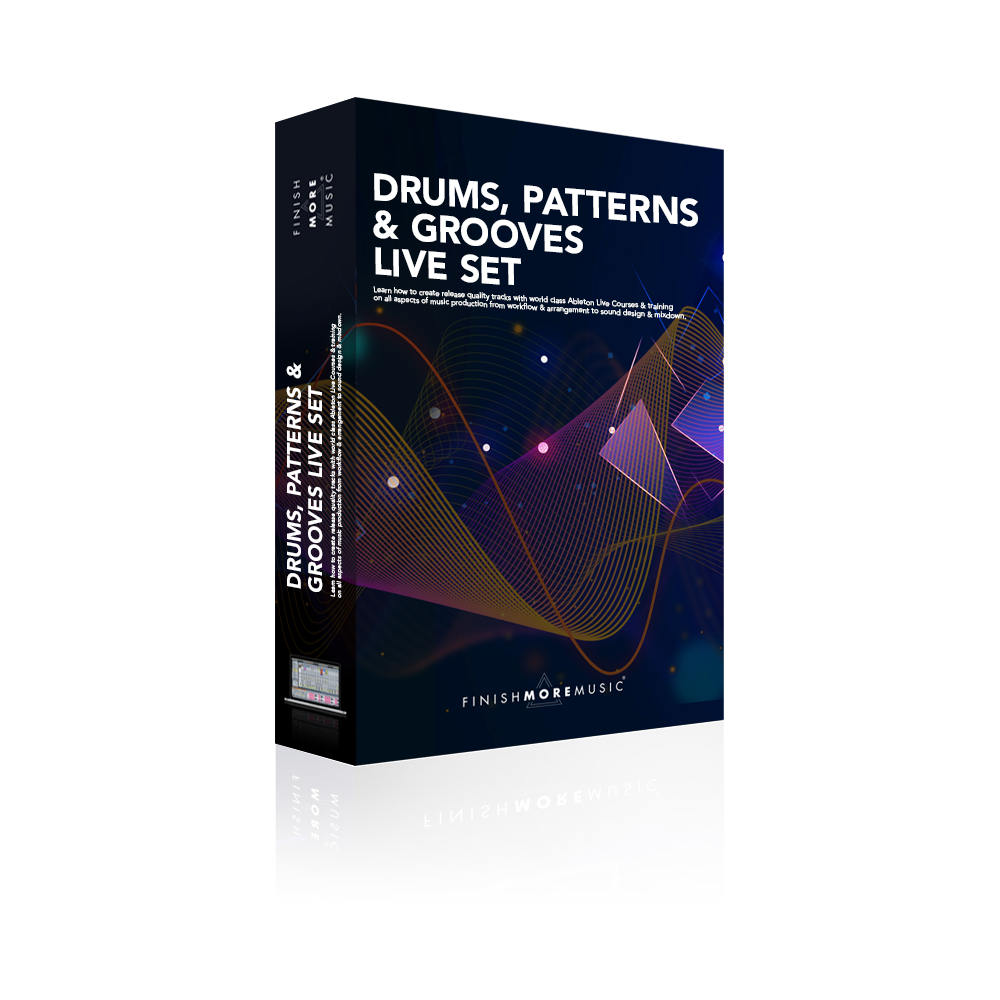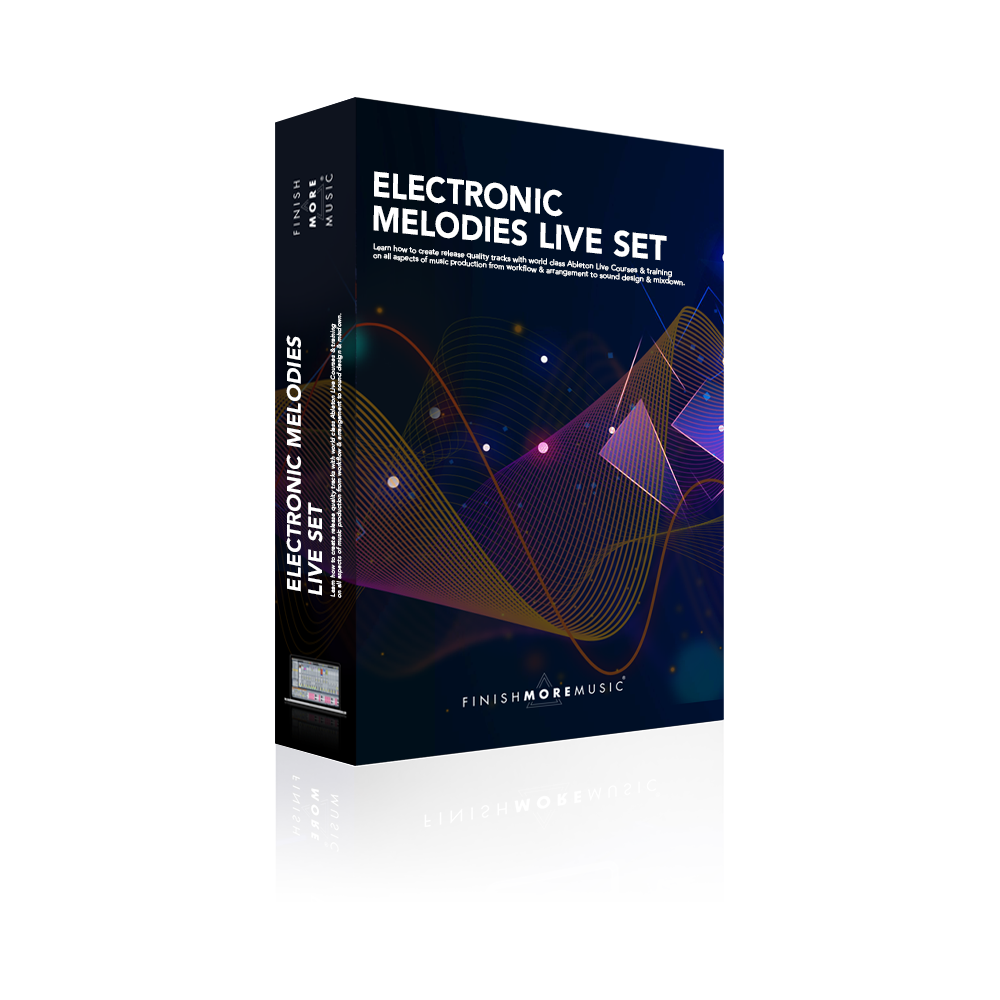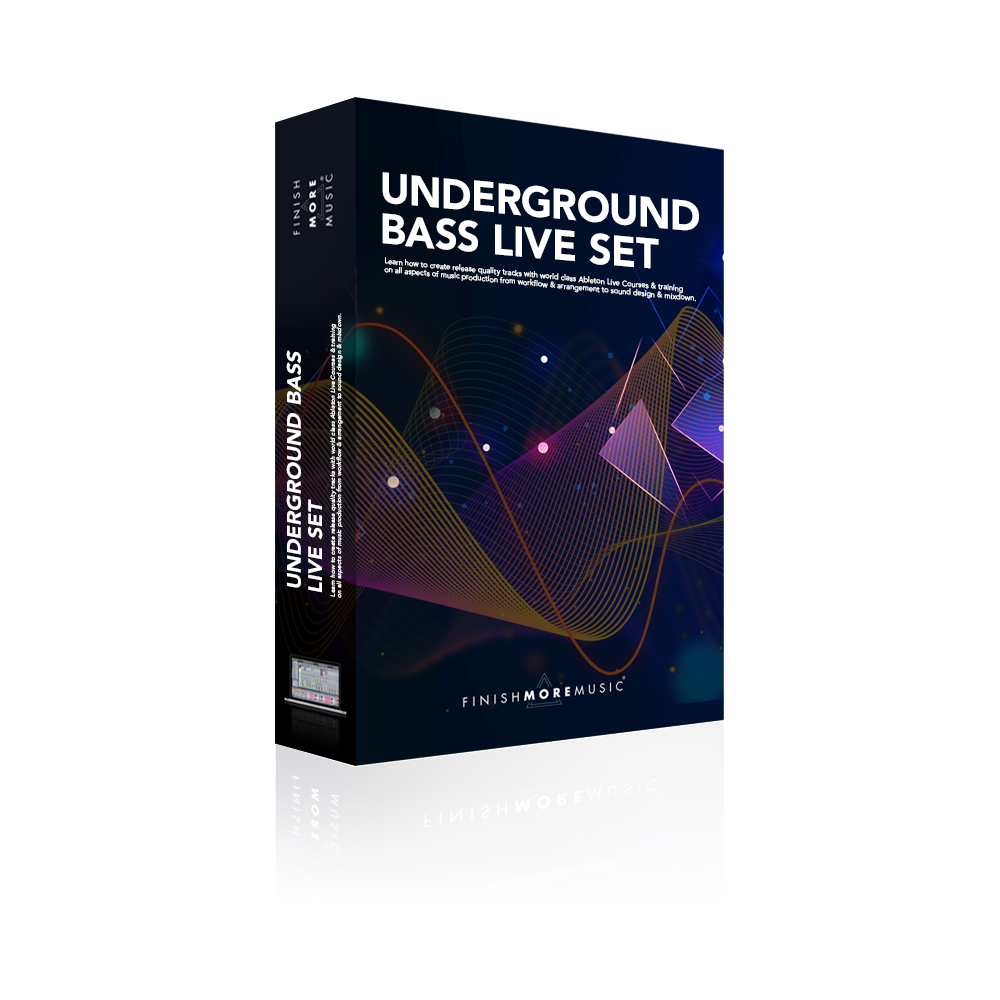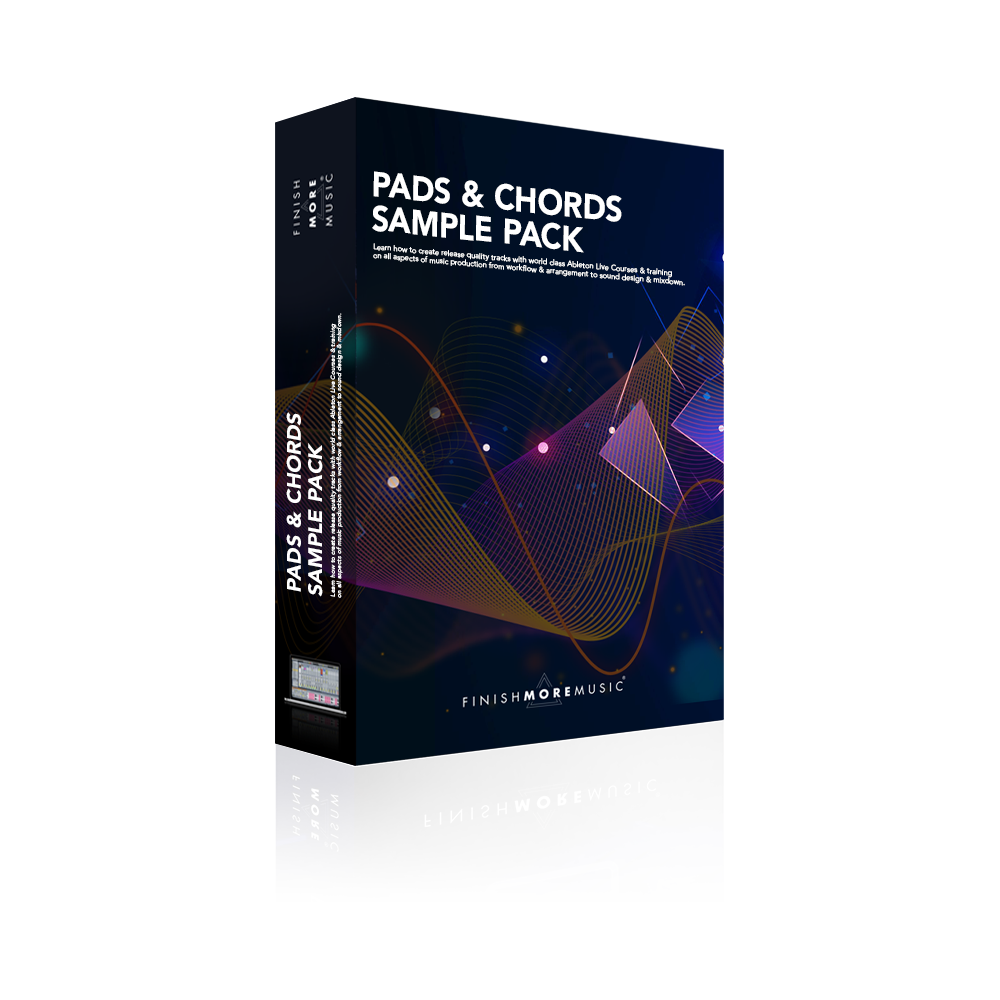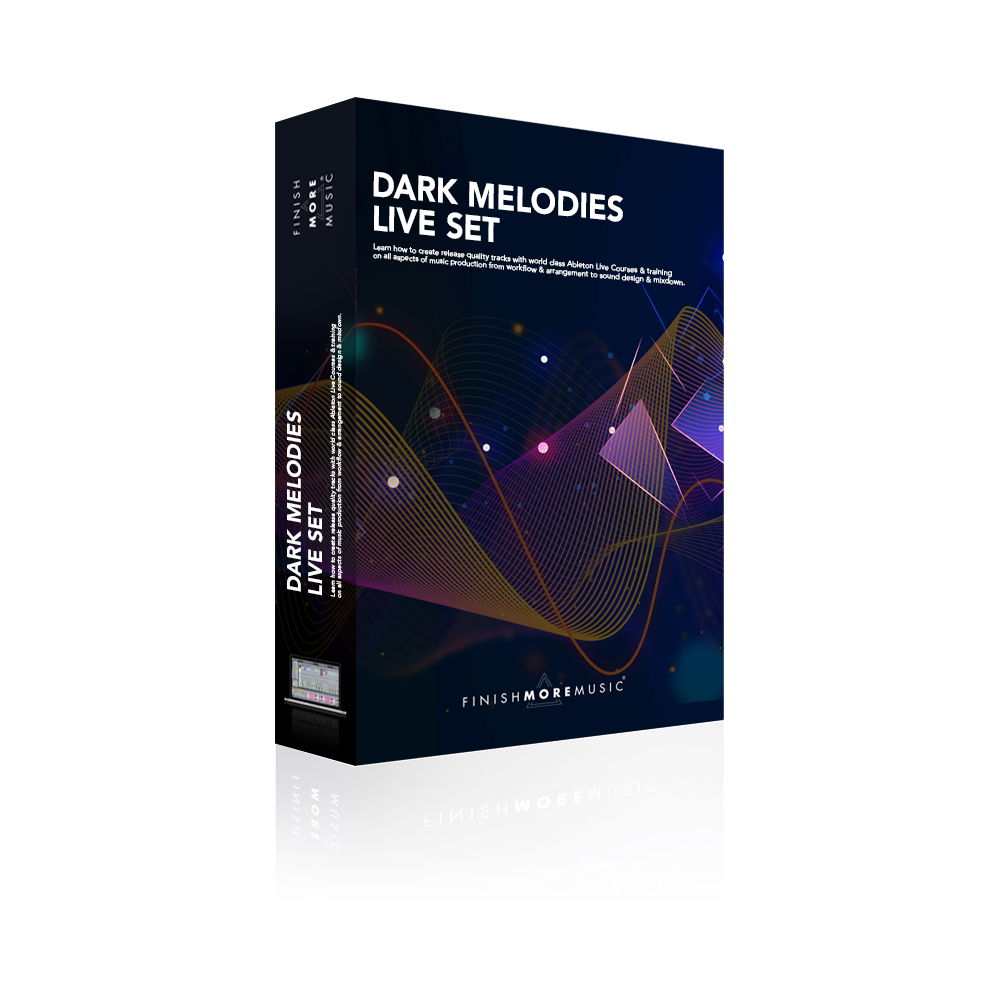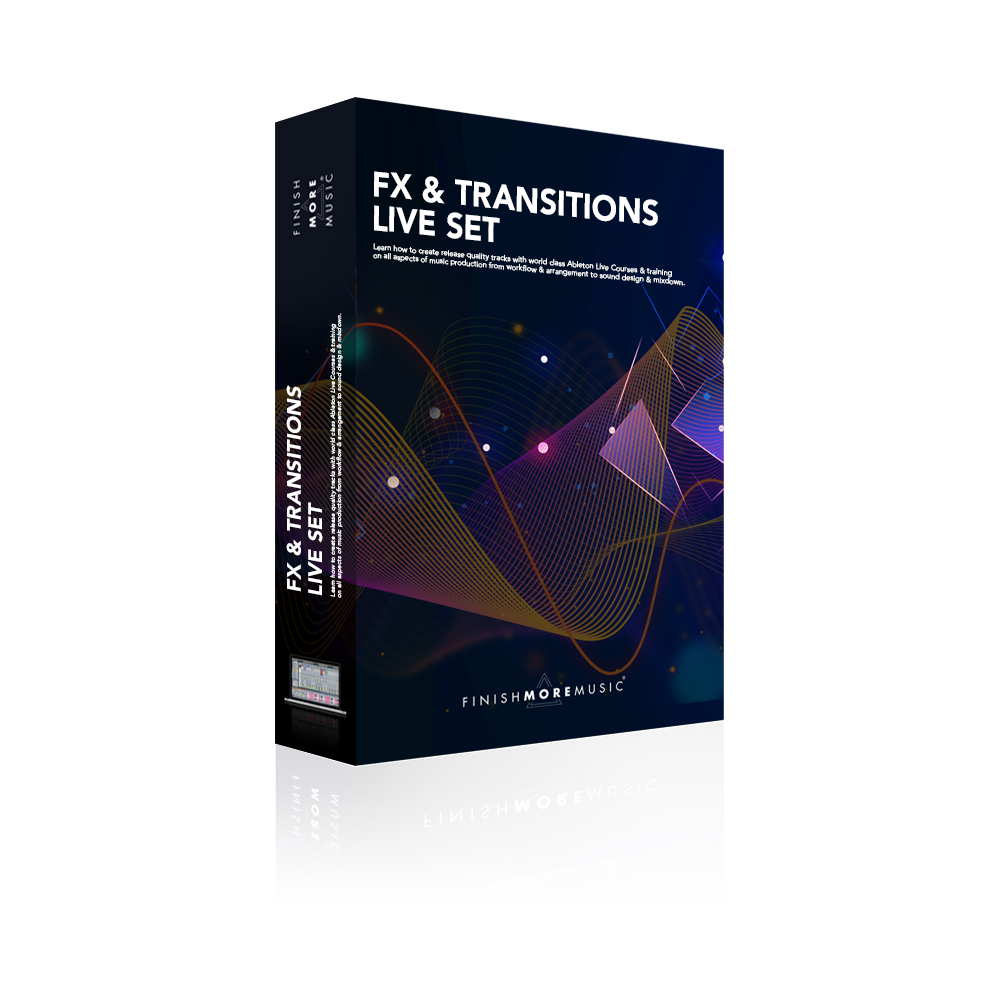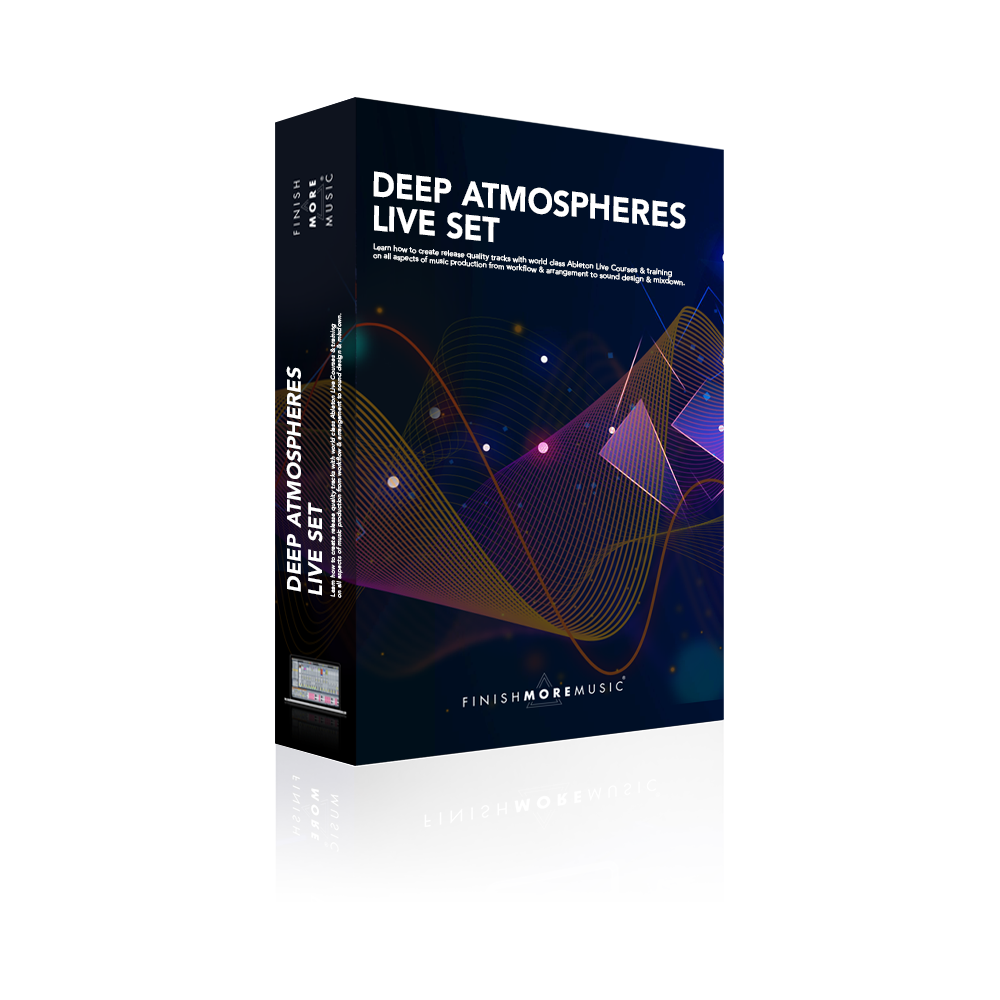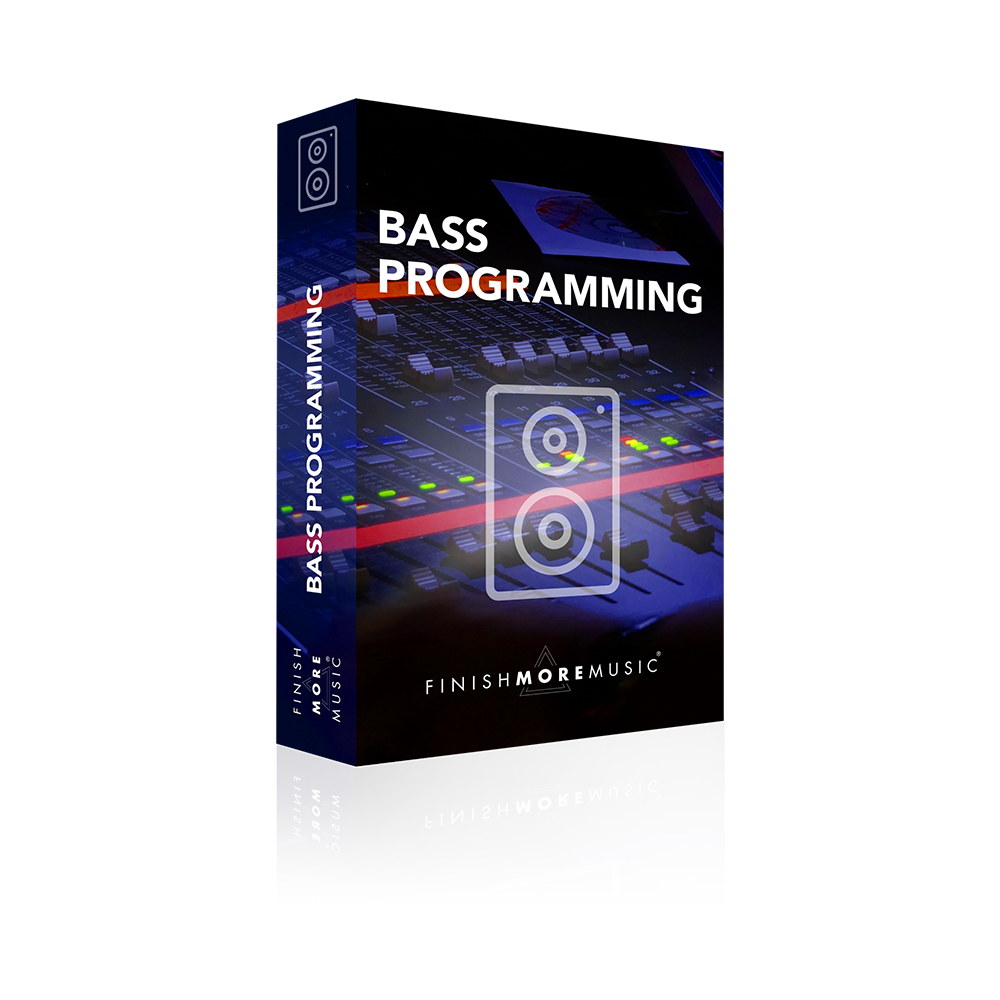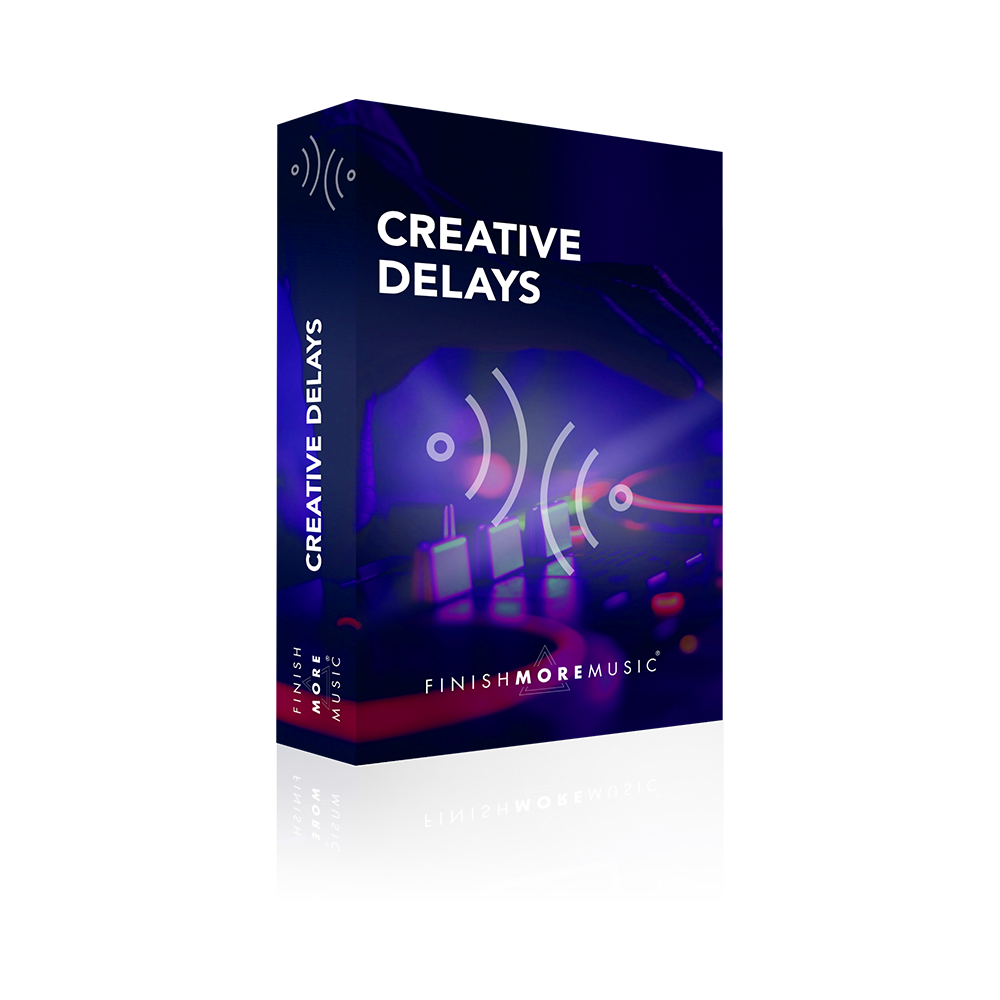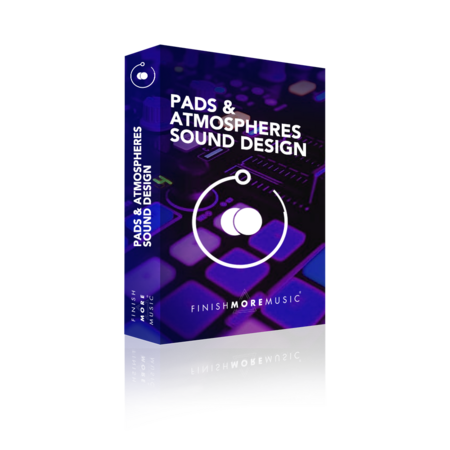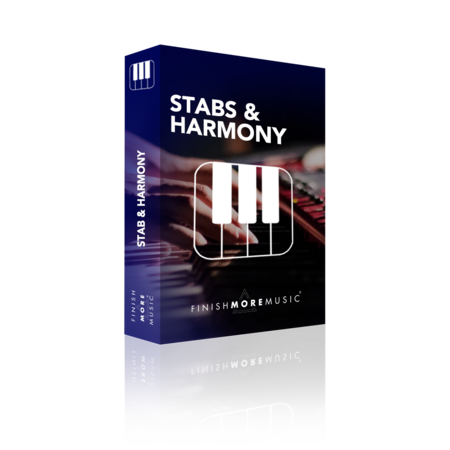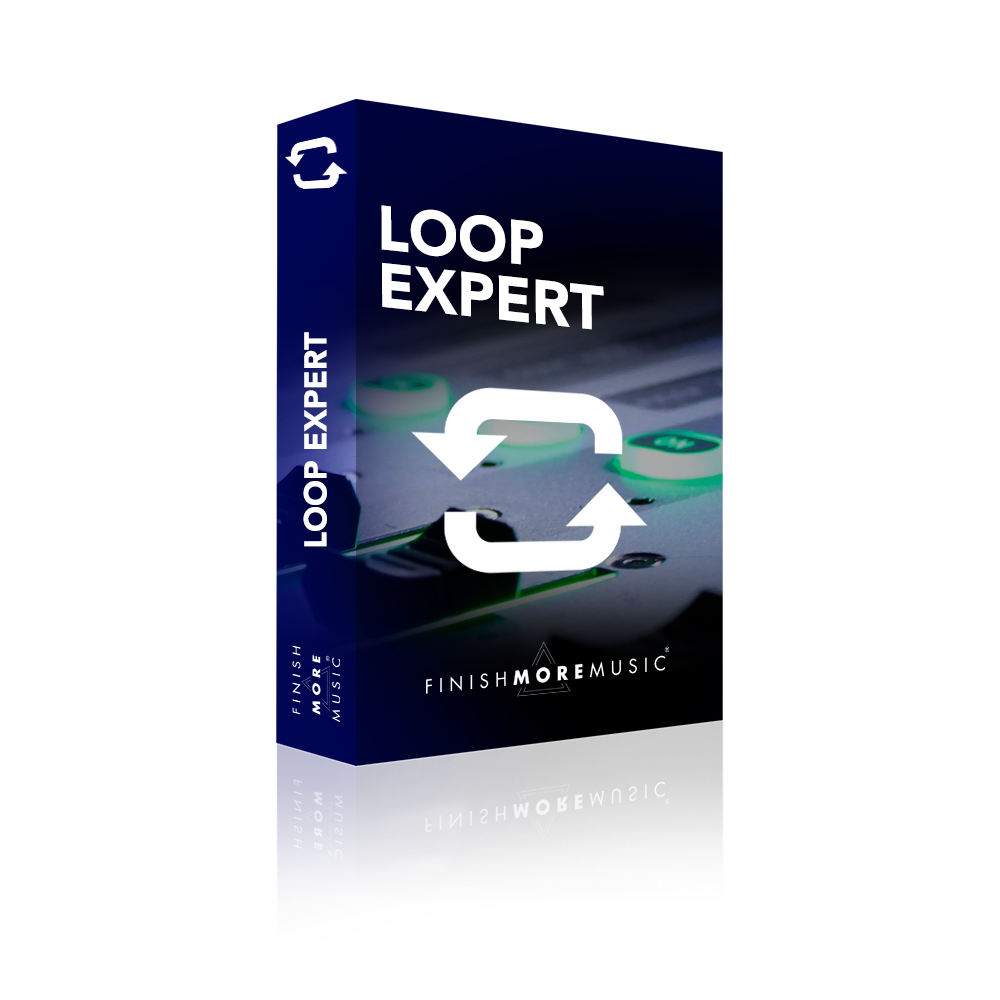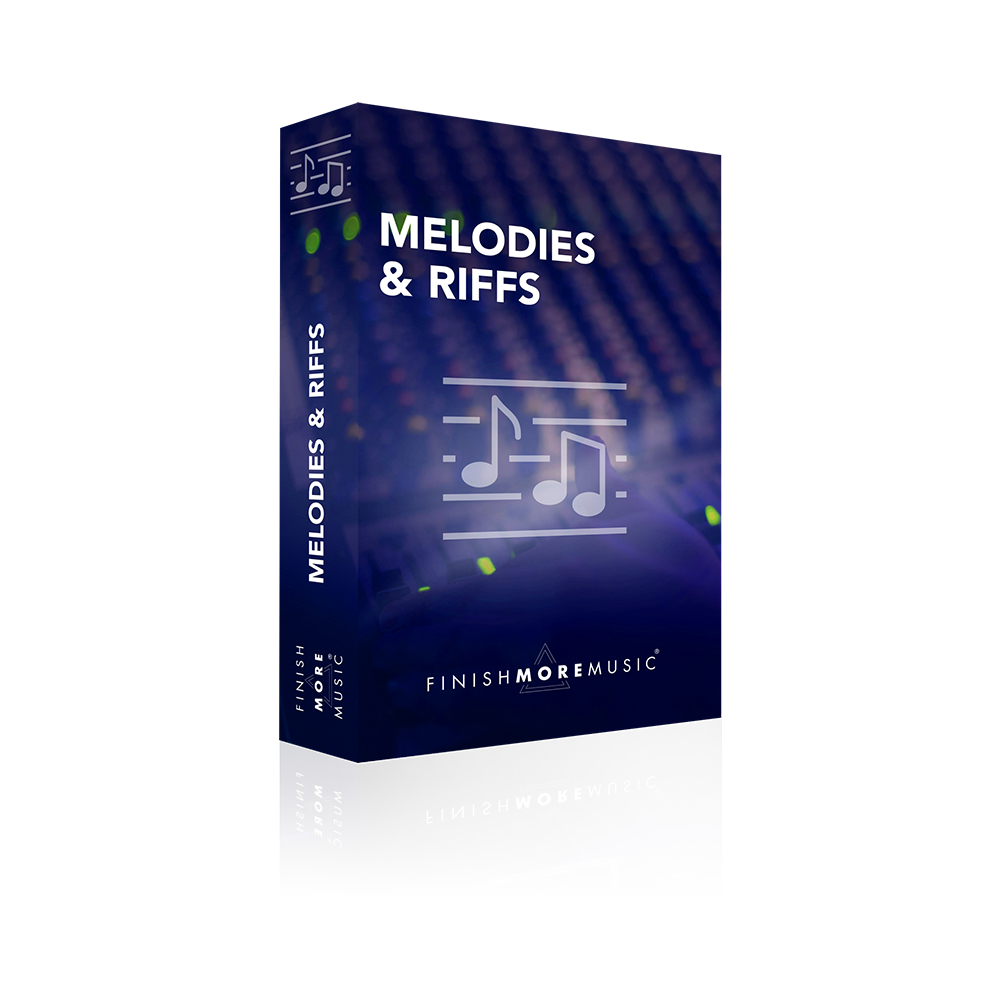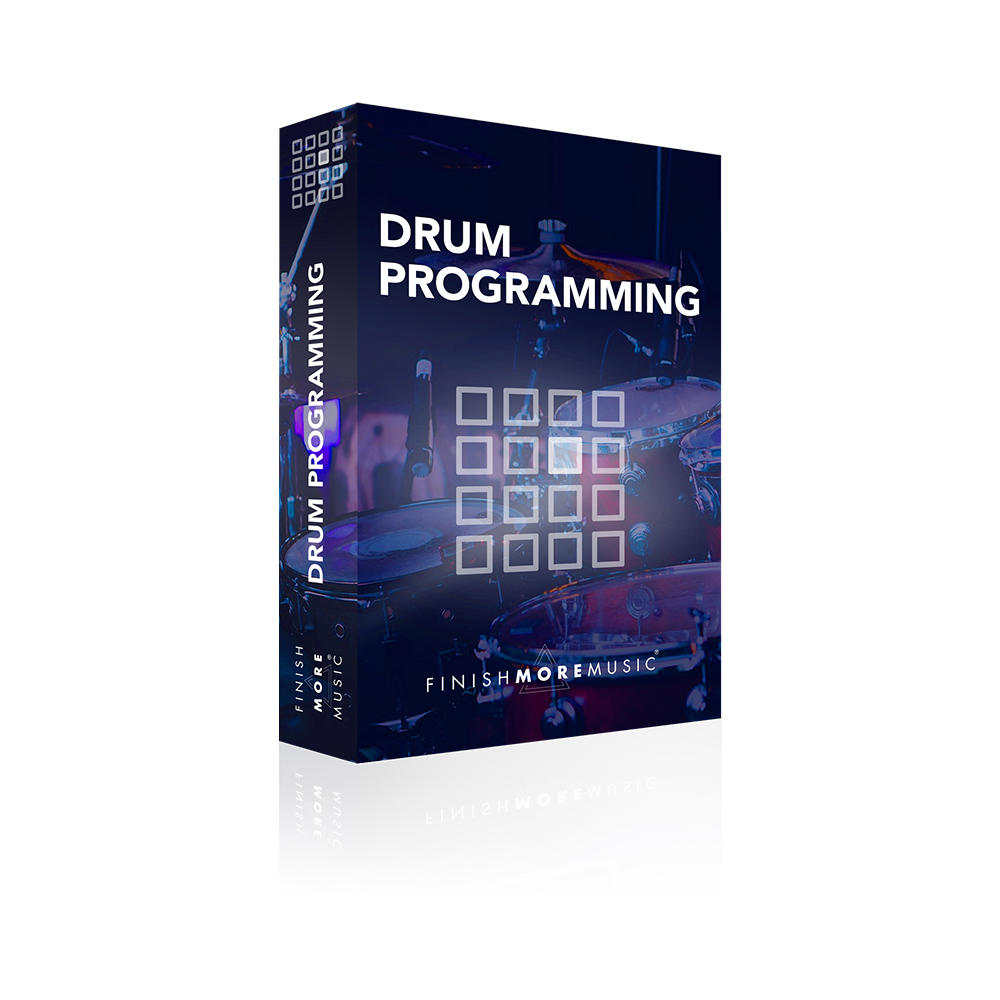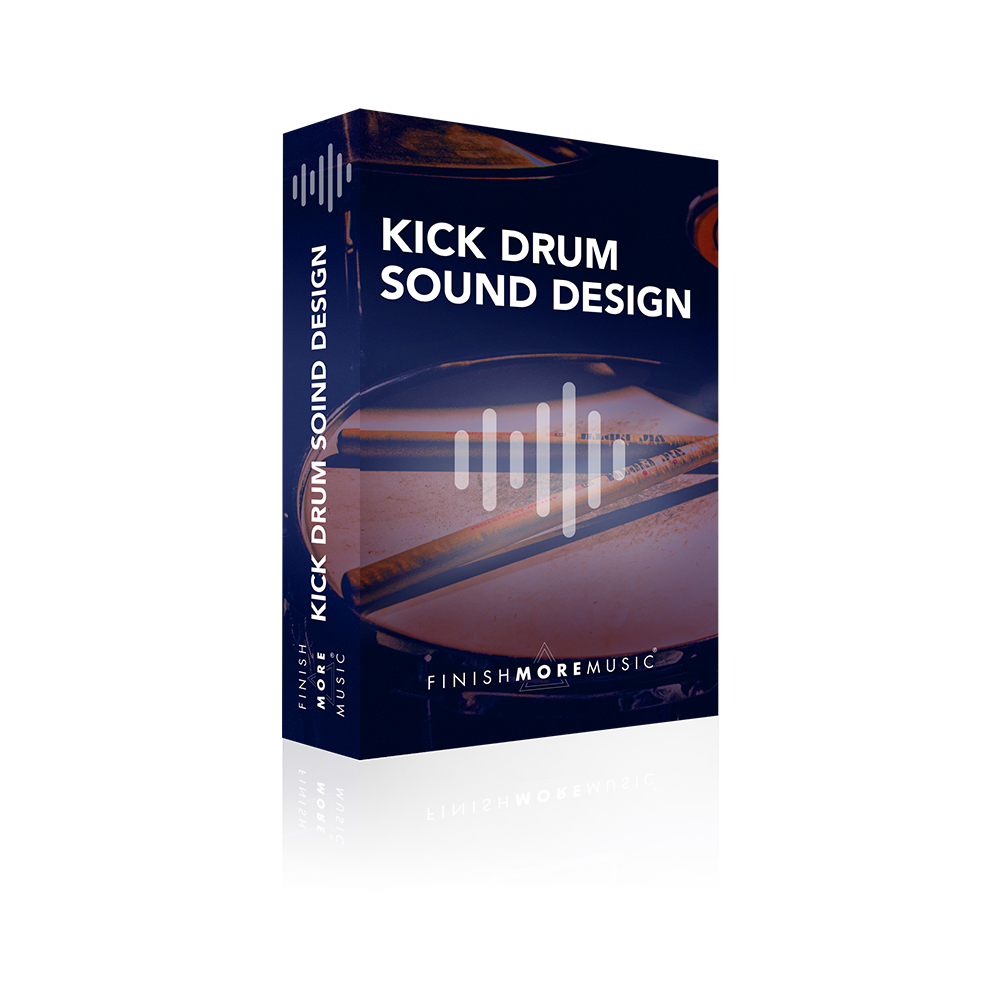This is an automated transcription which may have some occasional errors in spelling and grammar.
Hi, I’m Keith Mills. And this is episode number 78 of the Finish More Music podcast. And today is the start of a very special series in which we’re going to be hearing about the journeys and lessons from a number of the producers inside of the Finish More Music community. Now I’m super excited for these case studies, because they’ll give you the opportunity to learn from producers, just like you, people who have huge ambitions and who have also wrestled and overcome a variety of challenges and blocks along the way to see the awesome results that they’re achieving today. Now, I think stories like these are incredibly powerful because so often it is just one piece of information that is all that it takes for you to flick a switch and see huge change for yourself. So today’s episode none other than my main man, Chris Forsyth, AKA Tenerfuse.
And I know that this session is going to resonate with so many people because Chris recently backed himself to make a move that most creatives dream of. He left his day job to go full time with his music. So in this episode, we’re going to talk about the risks, the rewards, the lessons Chris has learned, as well as the power of investing in yourself, personal development, and the key characteristics you require to make such a move. And also Chris shares a really emotional journey of his own personal battle with addiction and how with dedication, with commitment, you can achieve anything, literally anything you put your mind to incredibly powerful episode. Now, before we dive into the full show, I want to give you a quick reminder that the new Finish More Music workshop is going live for you on the eighth. Okay, October. So yeah, jump over, finishmoremusic.com/waitlist it’s completely free.
It’s a three part video series and it is designed to fast track you from finishing little or no music all the way to consistently finishing tracks. You’re proud of it’s all about getting your music out there about getting releases about seeing constant upwards growth as a music producer. Now, fair warning. I only put it up for a short period of time because I do live training with it. So you’re going to want to make sure you don’t miss out by heading over to finishmoremusic.com/waitlist. If you’re someone who find yourself procrastinating, wasting your valuable studio time, and maybe try course after course, all the YouTube tutorials, bits of gear, loads of the latest software. And none of it seems to work. Then jump on this video series it’s for you. I’m going to shine a light on the real changes that will make a difference and get you accelerating towards your version of success. Yes. Okay. So that’s finishmoremusic.com/waitlist.
Let’s get stuck into today’s session is to Finish More Music show for underground dance music, producers who want to finish more and better music, and to share it with the world. My name’s Keith Mills, every week, we’ll dive into the mindset creative strategies that will help you to move further, faster music production, Jen. Hello, and thank you for joining me on another episode of the Finish More Music podcast. So absolutely delighted to be joined by the main man, Chris Forsyth, a K a Tenerfuse and Epic member of the community. And it’s got so much to talk about really, really excited about this episode. So Chris, thank you very much for joining me. How are you man? Doing great. Thanks for having me, Keith really appreciate it. Yeah. And I absolute pleasure be wanting to get you on the show for a while, because I know you’ve got a fascinating journey.
You’re doing amazing things at the moment as well. And what have you been up to lately? Jeez, a lot. I, you know, spending my days pretty much working on music from sunup to sundown with some breaks in between. You know, and then also looking into exploring a kind of a secondary career, especially given times in, you know, with Colvin and everything and not having any live shows at the moment, you know, exploring a secondary kind of side gig with coaching life coaching and trying to use my experience with you know, some of the things I’ve been through in my life to, to help other people, you know, achieve their goals and things like that. But I, I would say that most of my time is spent working on music. You know, I try to wake up pretty early and put in a few hours in the studio and then hit the gym, you know, come home do a little reading and rest kind of recharge a little bit and then, you know, try to get another couple hours, few hours in, in the afternoon and evening.
But yeah, I mean, that’s, that’s really all the bulk of my time is being spent. And that kind of speaks, I guess, to something that’s happened in the last 12 months, which is you moving full time into this, but I think really the last kind of 12 month period is pretty fascinating across the board. So what is that book for you and what’s been happening? Yeah, it’s been it’s been crazy. I mean, if I, if I look back to, I mean, you know, a year ago I was, you know, for a long time I had been thinking about, you know, music is all all that I like think about from sunup to sundown, even if I’m at my job, you know, I’m
Thinking about what I’m going to do with my music when I get home. And unfortunately, you know, I would get home and I would be tired and I wouldn’t be as productive. And I felt like I was just leaving a lot on the table. So since I had been thinking about it for years and years, I felt, you know what, I’m going to give myself this chance. I’m in my early forties and I’m just going to give it a shot. And, you know, I had faith in myself that I would land on my feet if something were to happen, you know, I can always go back to work. You know, I built a pretty successful career in the finance industry. And you know, I just, I felt like I needed to give it a shot or else I would potentially look back several years down the line with some regret that I didn’t just at least try, you know, so I I’m kinda made a deal with myself that I would give it all of 2020 to to just commit to my music and also like explore some personal development, kind of just see where things sort of take me over the course of the year.
And yeah, it’s obviously been a wild year given all of the, you know, extenuating circumstances that are going on around us, but it’s you know, I dove right in, I joined FMM plus it was it was something that I knew I was going to have the time for the energy, for and commitment for to really dive into the community and the process and you know, doing that has been huge. And it’s, I, I would have never guessed that I would have achieved what I have by now. Not that it’s like amazing. And then I’m like living off of my music and like making an income from it. It’s like sustainable, cause that’s not happened yet, but you know, it’s been an amazing journey and I’ve learned a lot about myself. I’m, I’ve established some new relationships that have just been incredible new friendships that I think are going to last year. So yeah. I mean, it’s just, it’s been a lie. It’s been a whirlwind, but it’s been quite the experience.
Yeah. So I think a good thing to get into. That’s interesting, as you mentioned, obviously, the personal development side of things, what happened from a musical perspective as well. And because I know that loads of people are really keen to step out of a nine to five something that perhaps they’re not that lit up by and they, you know, I love how you put it, you know, you’re going to back yourself, you’re going to give it a shot. What’s been the effect of that on your music? Well
Personally, it’s, I’ve had the creative energy and focus at the beginning of the day, which is when I am most creative and most focused like in the morning where I was spending that time in an office environment you know, over the course of 10 hours, Monday through Friday and now like I wake up and I treat that I treat music like my full time job. Like I, I clock in basically in the studio every morning and regardless of how I feel you know, I make sure that I just put myself in the chair and start working. And it’s been, obviously my output has, has went up tremendously. I’ve I think I’ve finished since January, you know, over the past, like what nine months or so I’ve finished somewhere around like 50 or 60 tracks. Maybe a few more.
But like the quote not only is my output as far as quantity increasing, but the quality is increasing as well. And I’ve had time to, you know, making music is obviously the core of my job, just like when I was in finance underwriting and looking at financials was the core of my job. But there’s other ancillary parts of your job, like networking and building relationships and then like trying to learn the social media and all of that stuff and just kind of, you know, exploring all of those different parts of the career, I suppose. But yeah, I mean, as far as, as far as the music, it’s just been you know, quantity and quality is increasing because I’ve been dedicating more of like my high energy times of the day to doing what I love most
Sure. And I mean, you’ve got the payoff and the validation as well, I guess, releasing on iconic is no mean feat and you’ve got a bunch of other releases, but you know, you’re hitting labels now that, you know, for sure, you know, there’s, it’s all well and good, you know, you’re going like, okay, the quality is going up and I’m saying, okay, I’m your mentor. I can hear that Chris, the quality is going up. And then you get like that extra layer of validation where somebody else is saying, no, listen, we want that track. And that is a tough label to get on as well. How did it feel when you got the notification come through that they they wanted you to sign on the dotted line for that?
Honestly, I was, I was shocked. I, you know I’ve always thought less of my music than what I typically get feedback at, you know, at the level I get feedback of at the same was the case when I sent off my first three tracks to a label H digital and the label affiliation before when I started at FMM I was like, well, you know what, I don’t know. I’m going to just give it a shot, see what these guys think. If nothing else I’ll get some feedback far as like,
You know, your low end is shit or whatever. And and I can, you know, build and try to get better from there. Well, you know, they came back and they were like, no, we like all three of them. We’re going to release them. And it was the same thing with, with iconic. I was just like, I think these are good tracks, but you know, my opinion of myself as much lower than I guess, reality is, you know, since it’s been proven. So so yeah, it was, it was, it was amazing. And it’s, it’s been a, it’s been a great experience, you know, just getting that message and like the support and encouragement from, from the FMM staff and the people and, and members in FMM. So it’s yeah. And iconics an awesome label. And John is a great guy to work with and, you know, so, so that’s been great too, so
Totally. And it’s like I say to you, of course, we all know you’re your own worst enemy. All of us are. That’s kind of how it is when it were your own worst critic as a, is a better way of putting it when it comes to the music. But it’s not a one off. Sometimes people have a peak where like the one hit wonder syndrome where people are a much lower level. Skill-Wise, they’re not able to consistently write that music, but sometimes the muse hands, us that magic moment and attract comes out and then they get that track signed on a bigger label, and then they can’t back it up. And then the labels ask him for music and other people are in the pressure’s too much and they can’t handle it. It becomes really sort of a big difficulty and a big weight to carry in the studio, but you’re consistently writing at this level unquestionably. And I mean, you must be able to see that even if you were surprised that they were going to do it I think I’d be really interested to hear, you know, about how you feel that you’ve got to that level of consistency. What are the biggest factors for you? That’s got you from that stage perhaps to compare to where you were a year ago.
Not a good question. I think, you know, it’s a, it’s a few things. One is just hours in the studio. It’s, like I said, regardless of how I might feel, I know that I just need to put my ass in the chair and start writing open up Ableton and just start cracking away. And just doing that and continue like repeatedly going through the process has been, you know, it just kind of strengthen those muscles. Like, it’s just like kind of going to the gym, you do it repeatedly and you just, it gets, it gets easier. There’s still things that are, you know, really hard for me to this, to this day. I mean, as of today, I’m like trying to work on making my transitions better and like, it’s really hard. It’s like, it’s like doing a squat for the first time.
And after I do it, I’m like so sore from doing it and like just mentally exhausting from working on, you know, two or three transitions. But over time, you know, that’s how it was before with my drum programming and over time, like it just gets easier. And now I have you know, go to sounds that I use go to kind of channel strips that I’ll use to like, make my drum sound a certain way or make my bass sound a certain way. So, so that has helped just like the repetition collaborating has helped a lot collaborating with a couple of guys through, you know, events in the community. And also just like, you know, on the side with you know, guys like Juris who goes by from one of my favorite CoLab partners and I’ve learned a ton from him.
I mean, the guy’s, he’s just a wizard. He’s got like 95 tracks in his, in his, in his projects. And it’s like, I just, I’ve learned a ton from just working and sharing projects, going back and forth with, with him. And there’s others as well. You know, that in the community, there’s another guy Brian, that he you know, makes a genre completely different than mine completely. It’s like, I make stuff around like one 22, one 24, and his stuff’s like one 12 BPM, one 14. So like learning from him and like developing a happy medium from him has been, has been huge as well. As far as just like strategies that I use to improve my own sound reference tracks have just have been huge metric AB that’s. That’s like one of my GoTo plugins just for like track analysis.
It just does so many things for, for AB in your tracks. And yeah, so you don’t want to, one of my recent struggles, for instance is I was having trouble with really getting more definition and clarity in like my one K to five K region where like, you know, a clap might hit and I just didn’t have a lot of action there. So I just like brought up some reference tracks. I, I isolated that frequency band identified, like what was going on there and then just practiced and tried to replicate it. And then once I thought I had it replicated, I sent a track out to a label that I was kind of targeting and was like, Hey, you know, what do you think of this track? Thinking that, you know, if he did again, if he didn’t like it, he would tell me he didn’t like, it didn’t want it. And he was like, I’ll take it. You know? So I, I didn’t have to ask for feedback specifically on that one K to five K region. But I was hoping that I might get that feedback if he didn’t like it, but he liked it. So I’m like, it must be doing something right. You know, targeted me. And
I think there’s already a kind of thing developing through this, in that a lot of times you’re saying, I wasn’t really sure about it, but you did it anyway. You actually took the steps. So with like, when we look at this, you’re saying, okay, so I knew there’s a leap to say, okay, I’m going to share with my day job and I’m going to go for this. Okay. There’s iconic. I wasn’t sure I went for it. No other label. Wasn’t sure. Went for it. And you get them results off the back of it by backing yourself. And it’s kind of, as we say, magic happens outside your comfort zone.
Yeah. Yeah. I mean, I, that’s a, that’s a really good observation actually. And it’s something important too to know is that, you know, there’s a lot of fear in sending something that could be criticized or judged or rejected or whatever, in any case, no matter what you’re doing in life and what the thing is, is like, until, you know, like you don’t know, and you can’t make adjustments to change direction or choose an alternative path or, you know, or, you know, whatever. I have the, I have another body in the, in the, in the program here that he’s been wanting to send his tracks out for awhile. And, and me and another guy are just like, dude, you gotta send, just send it out because at least then, you know, and you’re just going to stop talking about, well, what if, what if, what if, because one door closes another one opens it’s cliche, but it’s so true. And in my experience, I really do just believe that everything kind of works out. If you, if you treat yourself right, and you treat other people, right. Respectfully it’s things just kinda like work out for you and maybe I’m privileged. And, and I, you know, I feel very grateful and fortunate to be able to say that, cause it’s probably, maybe not the case for everyone, but you know, in, in my case that’s been my experience, so,
Well, I mean, we’ll, we’ll jump back to an earlier time in a moment because obviously there’s probably a time in your life when you weren’t thinking like this, which we’ll get to in a second. And I think that that’s probably, I’m gonna balance that out, but just getting to that idea of even you talking to this guy and saying, you know, the, the what F I think one of the important things for everybody to absorb here is that the same level of thinking that got us to wherever we are now in our life is not the level of thinking that’s going to get us to the next step. If we don’t do something different, if we don’t try something different, if we don’t roll the dice, we’re never going to progress to that next level. It’s something that I do with a team all the time.
It’s like a, it’s one of our big things in our meetings is okay. We want to get to here. We’re here at the moment where like further down the ladder, we want to climb higher. We want to get these results for our members. There’s no point us just saying, Oh, well, we’ll keep doing what we’re doing. Weeds. Let’s bring new ideas. Let’s come with saying crazy. Let’s think of saying risky and then take the step. And like you said, that’s when you get the feedback, that’s when you’ll learn or recently for you, not when you get the feedback just on the sale. Yeah. Lovely. Chris, we’ll take that track, but you now know, notice, step up another level and another level and another level. And you know, it’s brilliant that you’re doing that. So I want to kind of jump backwards here, but I, I want to segue into it a little bit because you’ve written, is it two, two blog posts now I’m calling them blog posts to kind of more like articles.
Yeah. There’s, there’s, there’s three, three out there on medium. And then I dunno, like three or five on my website, but yeah.
Yeah. Right. So, I mean, we certainly, so website is what, Tenerfuse.com. So people want to check that out. And then on medium, who do they search for to get to the, these options?
It’s medium.com and then Chris Forsyth,
Right? So it’s like slash press Forsyth, any hyphens in there or anything funky.
You know what, I don’t actually know what the URL is. If you just go medium,
We’ll find it. Don’t worry about it. We’ll find it and get it in the show notes. I want to specifically point out to them. And it’s not just the like, Ooh, promo for Chris type thing, because they’re really insightful. You thought a lot about them. They’re beautifully written. I said this to you, you know, they’re a joy to read when you share something like that. And it’s like a, it’s a big amount of your thoughts and experience. Most people wouldn’t get to the end of it, but they do because you’ve shared it. And you’ve had so much great feedback because it’s so well written and comes from the heart. And that tells a lot about your story. So people definitely want to go and check that if you’re listening to this, make a note of it, for sure. But I think it’d be great to explore some of it now. And I’ve just alluded to the fact that at the moment, you’re saying I’m super, super privileged. You make your own luck. And there was a time when that wasn’t the case. So if it’s cool, let’s kind of jump back to them and paint that picture for me. Cause I think it’s a really inspiring story for people. Yeah,
Yeah. Yeah. I mean, first I just want to touch on, I, you know, I, I’ve shared these stories about sending out tracks to labels and getting these surprisingly wonderful results. But I have had tracks be rejected by labels. I’ve had tracks not even listened to by labels. That’s just the way it goes. You know what I mean? It’s kind of like, I look at it like baseball or any other sport, you have an average and you’re not going to bat a thousand. It’s just, it’s just the way it goes. And I, I think that, you know, I’ve kind of accepted that and that’s been helpful for me. So just, yeah, one kind of point of clarification there, but yeah. So you were, you were asking like as far as like stepping back a little bit. I,
Yeah, so kind of the journey, so you talking about being privileged now, but obviously you’ve had your battles and struggles and you’ve had your music and the life and how that’s all kind of intertwined. And I think it’s always really great to hear the story behind
The success that you’ll get into. Yeah, yeah, yeah. So it’s kind of like where to start with this. It’s like you know, as, as a, as a kid, I suppose I had sort of a tough childhood, not in that, like I had a tough family or background or anything like that. I was very blessed in that regard, but I was a little guy. So I was sort of an easy target. And so I took my share of like beatings and bullying, you know, as I, as I grew up in, in you know, it it just kind of shaped me in a way, I feel like where I had to discover coping skills or coping mechanisms that worked for me. And, you know I think that one of those that I went to was in the primary one that I went to was, you know, drinking and drugs.
And, you know, it started with drinking started with soft drugs and just kind of like evolved over time. And you know, not to say that like, it’s completely at fault of like what I experienced as a kid, but you know, it kind of went, it kind of went into it and you know, eventually it just, it, it overtook me you know, I guess backing up a little bit, like I didn’t grow up in a musical household or anything like that, but I loved music. I just always, always playing music in my room and you know, always had headphones on and listen to all different genres of music. I think my first taste of like electronic music was listening to like pink Floyd. You know, you might not think of it as electronic, but they had a lot of synthesizers and it was like dreamy.
And I just, I really loved that vibe you know, naturally and probably because of like some artificial assistance as well there, but but yeah, it was you know, I, I liked that, but my first taste of like dance music was probably prodigy. And then nice first tie. Yeah. Yeah. And like that, it just like lit me up. I mean, the intensity of the, just, I just remember like the intensity of the snare drum in Firestarter, like was just like, so just smacks you in the face so hard. And I, yeah, so, so that was like one of my first taste of dance music or electronic music along that genre. But what really lit me up was Oakenfold transport. That was, that was like where it all started as far as like, I want to be a DJ kind of thing. So I started DJ and when I was probably 23, which is a little bit late in the game at least what I was thinking back then. But I remember
When I was DJ-ing one night and opening up for max Graham. And he, I told him, yeah, I didn’t start till I was 23 and I’ll never forget it. He was like, well, DJ. And it seems like it’s like a fine wine. You get better with age and I’ll never forget that call from him. It was really inspiring. You know, he was kind of one of my idols when I was opening up for him still is. And so yeah, so that was cool, but, but but yeah, I mean, I was very much tied in with the music or the music and the partying we’re, we’re joined at the hip. And I couldn’t go out and just like DJ and go home and have a beer too. You know, I, it was, it was multiple drinks and then other substances and it just like over time continued to get worse.
And I thought, I always thought to myself when I, when, when I see that this is good. Yeah, bad, I’ll just stop. And I thought that I had that ability to just kind of put the brakes on. But you know, it’s proof game that when that time came and I realized it, like I might be able to stop for a weekend. But you know, I think, all right, I’ll try it again next weekend. And I’ll go out and I’ll have a gig or whatever. And, you know, I just was never comfortable in my own skin. And, you know, that was just the way that I got comfortable in the DJ booth. Not only when I was DJ-ing, but just being out around people. So it was the way that I socialized it you know, it obviously affected my producing, which I started with Ableton.
I think it was like in 2005. And like, my DJ-ing was taken off at that point. I was living in Arizona and Arizona at that time. And I was opening up for guys, you know the idolize and you know, I, don’t not here to like name drop, but just to like, for perspective, like I was opening up for guys like Nick Warren and on bills with dig weed and dead mouse who was coming on at the time Armin van Buren, you know, a lot of like good names. So I was like having success, but I could not like keep clean, you know, I just in, yeah, it affected my development as an artist. It affected my ability for like to have output and from a producing perspective, I’m sure it affected my DJ and skills. I’ll be it. I thought I, they didn’t at the time, but I’m sure that they, that it did.
But I think what it affected more is my relationships. In fact, I know that it reflected that more. I started losing friendships. I became more isolated no longer was I going out and partying to be social. It was like, you know, just for the high and then I would end up like alone. So it was just, it became very dark. You know, so needless to say like, kind of all just fizzled out over time. And fortunately I was able to maintain my professional career over this, this whole period. I think that that is where all my energy went. So when I would be hung over, like my energy would be completely focused on keep my fucking job, you know, keep my job at all costs. So like music took a back seat and same with the relationships.
Well, you know, whatever long story short, like I tried a lot of times to get help. And I went to rehab several times with some success, you know, some periods of sobriety, but you know, it wasn’t until 2016 when pretty much I set myself away for six months and really just committed to do everything that they said to do that I started to gain some traction. And at that point is when kind of my music interest in music and momentum with music was sorta like rekindled, you know? So rambling a little bit there. I apologize for that.
No, it’s a thing, you know, it’s wonderful that you’re being so candid and so open, you know, I think it’s, it’s really nice to, you know, be able to have an interview with you and you’re just literally laying it on the line. Like this is the deal, this is where I’ve come from. And, you know, these are the, some of the dangers and the risks because in most of us who are into electronic music either are still into the party scene. Granted it’s on hold at the minute, but I’m sure it’s going to come back, you know, tenfold or have been in the party scene. And certainly, you know, I did more than my fair share of bits pills and potions as we call it in the UK. That’s kind of a, the name for it. I did more than my fair share of that stuff as well.
And I’ll be the first to put my hand up and say that, you know, granted when it was time to, well, I say when it was time to stop, I probably should have stopped many, many years earlier when I look back on it, the real fun and the enjoyment and, you know, I had a great time of it. I wouldn’t take it back for shit, basically. I loved it, but there was probably if I’d have had a bit more clarity, a good number of years earlier, I dunno where I would be in life now, you know, where the writer at that, those extra years of a head start for sure. And I’m sure loads of people can relate to this. So I don’t think, you know, there’s even a mere rambling, I think there’s so much value in it. So thank you. So when the music starts coming back into things, how is that like, does it work as a crutch for you and it’s a help? What was the impact overall? I’m really kind of curious because obviously the, the addiction swamps out the music, which was great. And then it starts coming out the other side. I’d love to kind of understand more the interplay then.
Yeah. Yeah. I, I think you know, it was something that I needed to be hyper aware of. You know, like the last thing that I wanted to do well, I may have wanted to do it, but I knew that I shouldn’t do it and I didn’t do it was to like hop back into going out to clubs so four in the morning and thinking that I could just like deal with it and, and avoid participating in that stuff. Cause I just wasn’t, I wasn’t strong enough at that point, you know? So I, I had to separate myself from this scene for, you know, several years. And I actually moved at the time I was living in Northern California, kind of near Tahoe. And there wasn’t much of a scene in that particular area. But before that I was in Chicago, which is, you know, it’s a hop out and it was, you know, there was always something going on.
So I didn’t have the temptation in Northern California, but at that time after rehab, I decided that I needed to move home and be closer to family just to kind of get my feet under me for a little while. And I left the corporation I was with for 15 years to come home and just kind of refocus and get myself centered. And you know, where I live, there’s not really much of a scene either. So I wasn’t, you know, putting myself in the midst of it. I knew I couldn’t. But like the producing was always sort of separate than the scene. Like I could, I could separate the two. So like the producing has always been more meditative for me, even if I’m feeling like anxiety or maybe a little bit down, I can open up the VAW and get stuck in.
And next thing I know, three hours pass and I’m like relaxed and I feel, you know, good maybe frustrated at a tune or something like that, but, you know, but overall, you know, I feel, feel a little bit more docile. So it was a, it was a kind of a coping strategy in a way. And then like music has kind of turned into more of like my addiction. Whereas like if I don’t do it, like then I just, I feel off, you know? So now it’s, it’s turned into it’s. I realized through the whole process and like going through like recovery and the general sense that I needed, I needed to be doing something that engages my heart and you know, and I need to spend the majority of my time, my waking hours while I’m alive doing that. If I’m doing something that is not feeding me like that, then I feel at odds.
And I learned that because I went back into the corporate world which is where I was before. And it was a great job, a great company, great people. But I was just, I just felt at odds. And so the music one, the biggest reason really that I took the choice of like giving this a shot is that like, it fills me up more than anything and there’s gotta be something to that, even if it’s not in the long run that I’m meant to be like, you know, a producer DJ for my life. It’s going to kind of like I hinted at before, it’s going to open up some other door. This, this step along the way is going to open up some other door along the journey. That’s going to show me where I need to be. And maybe that’s fluffy, but it works. I swear by it. So it’s my story. I’m sticking to it.
Well, if it’s fluffy, that’s going to be okay. Cause listeners of the podcast are used to me talking about this stuff. So if we’re fluffy, we’re fluffy again. And so I think there’s a couple of things that I really picked up on there. First of all, really what you’re describing is music is food for yourself. And it’s, it’s part of who you are and that you’ve then taken that. And there’s a really interesting thing here, which is that a lot of anxiety and discomfort and issues that we face is when our internal world doesn’t, isn’t mirrored by our external world. So internal reality and external reality, and you know how you are, you’re in a world shapes your outer world. So if inside you have dreams and beliefs, but you’re not acting on it and you’re not doing the things that are congruent with it.
There’s always going to be a friction and this underlying discomfort that’s in your life. And it’s amazing because you’re aware of it and you’ve seen it and you’ve adjusted course. So that’s the first thing is like, if there’s something that we really want to do in our life is to make it happen. And as you will know you know, for us working together, I’m a firm believer in that you are in control of your own destiny. You design your own life. It is on you. You’re responsible for it. And it might not be so a life you can step into it, the click of a finger. And that this will be interesting for us to talk about as well. I think, which is the, and we’ll get to this in a minute, which is kind of your advice about taking the leap into full time music.
I’m sure you thought about it some time before it happened. You prepared for it. You didn’t just click your finger, but you didn’t say, well, this is me and I’m stuck. You said, there’s a way I moved from a focus to an opportunity focus. So I think number one, that’s super powerful. And I picked up on that and the other one is the idea of the vision. You know, what you want to get and where you want to go with this. But you also know that the vision’s flexible because we don’t know. What’s just, it’s kinda like, it’s almost like having a map and saying, right, my destination is there and it’s five years away. And if you set out somewhere and you planned into your GPS or whatever it was, and you’re going to drive for five years or even three years to a location, there absolutely will be road works.
And there will be things that you discover along the way that may be make you say, you know what actually prefer that destination over there? Well, the roots will change or all kinds of things will change. So it’s not really fluffy. It’s a case of, if you sit where you are now, no new doors will open because you’re stuck in a problem focus. And if, instead you say, look, I see an opportunity. I’m going to go for it. Then other doors might open and you get to choose what you’re, you’re stepping into. You know? So I I’m, I’m picking up loads of great stuff. Just listening to your, I love
One thing just to kind of like jump in on that. I think that’s a great point is, you know, my mindset today. And this is stuff that I learn every day, like this, this, this I’m always learning. And I like to just maintain an open mind at all times to like new bits and bobs of information. But like to your point, life is life is, you know, we only have like right now in this moment. So what I’ve tried to focus on is like being in love with like the process, because we can think about the future about like, this is where we want to be. This is like what I want this check to sound like, and I want to be on this label and I want to DJ this show and, and all that stuff. But like, it’s, what’s happening right now. Like we live in this moment. So like really focusing on like, do I really like what I’m doing in this moment? And if, if I do, then I feel like that momentum is just going to continuously build. And I, yeah, I have a vision, but like you said, like it’s about building the momentum of the process and where that takes me could be even better than what my vision is, you know?
Yeah, totally. It could end up to be wildly different. Normally isn’t from what I’ve seen, you know, from, because obviously you, you reach three years and three years and three years. So although our vision is always out in front of us, we get to where we thought we would be. And certainly in my experience of having these visions, I normally haven’t deviated massively from where I hoped I would be. There would just be kind of tweaks and things that you bit like when you’re writing your music and it really gets brilliant, an apt talking to you because you were like, okay, I think I want to write this music and you stared it off for a bit. And then you came back. So the even genre moves and the only way you’re going to find out is by keep writing the music and keep trying.
Yeah. Yeah. And it’s mirrored all the time. If we, if we see something and we want to go for it and we want to do something, we’ve got to do something different and we got to try it and we’ve got to find out. And I think this matches up really brilliantly with what I also wanted to discuss with you, which is that you’ve made these changes and you’ve made these leaps. And one of the things I always observe about you is how much you’re prepared to invest in yourself, always. So what are the biggest things or the maybe the most impactful things that you’ve invested in that have helped you with your music journey and to get you following your vision?
First of all, is my health and wellbeing and mental, my wellness, you know if I see that something is off about how I’m feeling, you know, it could be, it could be physical. Like I’m, I’m the type of person that like goes to the doctor quickly, you know? Like if I don’t feel good or like something is off about how I’m thinking, like I’ll talk to someone about it, you know? So I think that in investing my time and, you know, taking the time to, to uncover what’s going on with me is my number one way of investing in myself. I don’t, I, I, I try my best not to let things faster and, and bubble because that’s sort of what I did for a long time. And I saw with that resulted in me coping and other ways.
So what I try to do now is just face my face, whatever I have going on had on personally. And and that’s been huge. So that’s been a big investment in myself. And then through that you know, just, I do a lot of journaling and journaling just opens up a lot of just like perspectives that I may not think of. If things are just kinda like stocking, you know, bouncing around in my head, like putting it down on paper helps a lot. So investing that time in journaling and like making lists and like just staying organized in that way has helped me to choose where to invest in formal training or in, you know, even like plugins and like to level up sound or something like that, you know, and I, I try to be very intentional with my my choices nowadays. It’s not, it hasn’t always been the case and I still struggle with it, you know, but just having that awareness of this is why I’m doing it, and this is what it’s going to cost me because there’s a sacrifice
Involved in, in making a choice you know, and just kind of weighing what feels best to me. And a lot of times it may not be the most logical decision, but I do tend to trust my gut and my heart when I’m making, making decisions and things like that. As far as like you know, one of the very important things with FMM is I, I definitely want to call out is just the community and investing in having a group of people, hundreds that are likeminded trying to do the same thing. And, and it’s been proven time and time again, that like the community as a whole is very open and invested in trying to help one another. And that’s something that I’ll like I want to continue to invest in, you know, because I live in an area where I don’t have, there’s not a lot of people here that do what I do.
And so, you know, in-person relationships are ideal, but if it’s not possible, then you know, online is good too. And with zoom and everything, like I’ve developed friendships with guys in London and Copenhagen and Amsterdam, and we talk weekly on zoom and it’s, it’s cool. So, so in that regard, and then really it, once I identified like, listen, like this is really something that I want to level up, I’m going to try to do this full time. And I really want to level up my production and my mindset and my whole like career perspective on this, getting like a mentor has been huge and like working with you directly in the program has been, has been awesome. And I actually just invested in formal training for my coaching certification because I determined this is something I definitely want to do. And it was worthwhile for me to invest in, in in that.
So one of the things I, I had mentioned to you before is that like, I’m spending some, some of my savings right now to finance this whole venture for myself and, and it could be looked at as being careless. And I understand that perspective for sure. But I see investing in myself longterm as being a more worthwhile and less risky with a higher potential for return investment than I do a 401k or the stock market. It’s just like how I view things right now. Now I could be slapped in the face with reality in 10 years, and that may not be the case, but I don’t think I, I believe that. And I, I’m determined to prove that that’s the case,
You know, so yeah, I agreed. Yeah. And I’m very much in that, that kind of area as well. And it’s, it is this fascinating kind of thing. And I guess I can speak to this as being an entrepreneur, which is a world that you’re stepping into as well now with your coaching, you know, it’s something that you’re going to start taking on clients and your being your own boss, living your own life, and with it comes higher risk. And as we know comes higher reward, but here’s one of the fascinating things about this. As you go along that journey, the more you’re going to learn about all different aspects of entrepreneurship, just in the exact same world thing that you are in the music. And if an idea goes bad, or if a label goes bad, or if any of these things goes bad and it all drops back down, people think, well, how am I going to get that back?
Well, it’s really, really simple how you’re going to get it back. You’ve built yourself up to be the person you can get it back. If my entire world dissolved pretty much tomorrow, how long would it take me to get it back? Not that long, cause I know exactly how to do it. And so, you know, I’m certainly not going to sit here and give financial advice, you know, as to whether people should, what they should invest in pensions and all of those things. But I agree with you and investment in yourself and in learning and in getting around the right people, you build yourself up and you can always get back to where you were much more easily than I think most people would imagine, you know, bar catastrophes and things like that. But if we’re talking about in the normal realms of life and even how you handle yourself or the lessons that you’re learning or the investment you’re putting in yourself, and I guess it kind of talks to what we do in FM and plus as well, right?
We talk about an 90 day goals and you really put in an extraordinary level of effort into him because of who you’re going to become in 90 days time, whether we hit the goals or we don’t, whether we get the vision or we don’t, who we become is a very different animal to who we were before and what can that person now achieve. And so I really agree with you when you talk about investing in yourself, it’s the fastest way to become a much better version of you and a much better version of you can achieve so much more than you would have done a year ago, for example. Yep, yep. Yeah, for sure. Well said. So what about other lessons? I mean, we’ve been through a load here, so you might just say good, good God, man. I’m out, but are there any other big lessons that you’ve kind of learned maybe in the last year? Yeah. Yeah. I think number one lesson for me has been to you know, live by the whole acting breeds motivation, and it’s not the other way around, like a lot of times I’m just not feeling like it in the studio, but I
Know what I need to do in order to give myself the best shot to reach my goal. So just put my butt in the chair and getting to work. Usually once I start doing that, the motivation starts to come in. I would say that’s one two is develop a sense of like, self-awareness this may not be for everybody. I understand some people, you know, don’t necessarily need to do this level of self, self exploration and that’s, that’s fine. But for me, like I’ve, I realized that you know, I need to understand why I’m making the decisions that I’m making. And I need to live intentionally. So it’s not, so I’m not left like second guessing and making like impulsive or compulsive decisions. So that would be another one. Another would be to regardless of where you are, like try to build some type of, or be part of some type of like community, even if it’s just a handful of people.
And if you are in part of like a big community, try to find a couple people within that huge community to be really close with. That has been huge for me. And you know, having those like friendships and that support and encouragement to just kinda like bounce things off of musically and otherwise has been huge. And then, you know, just put in the time it’s it will come and doing so with a clear mind. So like you remember what you’re doing has been more successful for me than, you know, otherwise, like, you know, doing it with a clouded mind or, you know, with six beers in near whatever. So, I mean, I do, I do just want to say like, this is, you know, this is totally just my story. And like, you know, not everybody is, is you know, is, is like me. And I don’t think that anybody should should or shouldn’t act or behave in a certain way. You know, this is just my story and that if it can help anybody, you know, that would be like the biggest reward possible. So
Yeah, man, I’m totally sure that it will. I really am. One of the things that you were kind of talking to in there that I thought was great as well, when you’re talking about it being intentional versus the cloudy mind for most people and it, granted there will be, some people are like just somehow tuned in all the time, but it’s more and more difficult to be that way now because social media is, is a weapon effectively. You know, you’ve got the marketing minds, psychologists, you know, Facebook, Twitter, these people, they, you know, they employ YouTube geniuses in the field to put stuffing your head and to make you get sucked down into rabbit holes and to effectively for large parts of our lives, living in a bit of a trance and that, so I actually, you know, I’m, I’m really behind what you’re saying in terms of, I think now more importantly, I’m sure than ever having awareness versus living in a trance is so important and being intentional and saying, you know, I don’t want my life to just keep going this way to be on this hamster wheel for it to be Groundhog day all the way all the time.
So I want to make that change, which is kind of the theme I think of this podcast, which has been great about making a change and investing in yourself that requires a deliberate effort to be aware and to make changes and to make choices and not to be lost in the, Oh, I’ll do it next Monday. Oh, I’ll do it in a month for the first of the month. Why is the first of them up so magical? What happens by then? You’re still at your in Groundhog day, you’ve kind of got sucked back under the water again, and the first has gone. So what we go, wait another month till the first, you know, so I think totally, it goes hand in hand, right there being intentional aware and getting out of the trance to make the changes in your life, which is cool. So let’s end up just with going back to st. We discussed earlier that I promised that I would touch on like the big change in your life of going full time in music. And that is a dream for a lot of people to be able to in whatever guys have their creative passion actually be their day job. When you made that change, what would be the biggest piece of advice that you could give to someone to think about if that’s something that they want to do
Go into it with out expectations to you know, don’t, you’re, I knew that I knew going into it, I wasn’t doing this for the money. You know, I wasn’t, I’m not doing it for like fame or like anything like that. And if you are, that’s fine. The money, I would say probably may not be the best, like reason to do it because especially now without live gigs, it’s really hard to like make income from, you know, you’re not making a lot of money from streams and sales on be poor and things like that. You know, so just, I would say that no, no, your why is as most important. And I, you know, to, to that point, I guess I don’t want to backpedal a little, but if, if you’re, why is the money if your, why is the fame then make sure that the steps that you’re taking when you make the decision consistently are feeding into that motivation.
So like, if it’s about the money, then you’re going to want to like, you know, have an incredible volume of releases. You’re going to want your social media to be like crazy, because it’s all about like promo and marketing nowadays. And you know, like your strategies is going to be different. So so really just understanding your why, and going into it with low expectations. And then it’s really just like anything else in the business or career world. Like, I think that it’s about like the connections in the relationships that you build and foster. And, and, and again, also just like the business and career or any other career is like, you’re going to continuously have to like do development and training to stay, not up to speed with everything that’s going on in the industry, but if you want to separate yourself, it’s an extra level. So, so yeah, I would say those are the main things.
Yeah, sure. I know Chuck quantum from my experience as well, which I’d say preparation is everything. One of the things that comes up in the community quite a bit will be a question around like, I really want to go full time, but I think it’s super, super risky. And actually it’s super risky if you make it super risky. It doesn’t have to be that way. So like, you spoke to the idea of, well, you’ve got a career you could go back into. And certainly that’s what I built. I was like, okay, I want to do this full time. I’m going to make sure that my CVS such that if this doesn’t work out and if I can’t do this and I can’t, you know, follow my vision, it doesn’t pan out. As I hoped I can go back into a career without too many problems.
The other thing that I did was say, okay, well, let’s make sure I save up enough money to act as a buffer so that that’s not going to be a risk because the minute that we were freaking out about money and we’re trying to be full time, it’s pretty difficult not to have that as a distraction if it’s weighing you down within the first couple of weeks. So, and there’s a whole bunch of other things that people can do, but I think that you can prepare. So you were talking about if your goal was to make money from it then, okay. If you know, I’ve only got this amount of money to see me through, we’ll make sure your music is good enough before you then got to take the leap. You know, we’ll make sure that you’ve, you’ve got a schedule and you’ve got mentors and like, you’ve say, peers, what is it that I’ve actually got this going to prepare me towards why?
So I think there’s the, like you say, there’s having that clarity around it. And for me, there’s like so in the case, what’s the run up. What’s actually going to put me in the position to give me the best shot of doing this rather than just floundering around. And I, and I personally don’t think the risk is anywhere near as huge as people think it is if they strategize and they plan a little bit like just a as a complete offshoot, one of the things that the British special forces, like the SAS who dares wins these guys, whenever you watch anything about them, they say, you know, yeah, fine. They’re all super trained, but they’re more prepared than anybody else to bring the risk down. And I kind of think it’s that. So. Alright, man, absolutely amazing. Thank you very much for jumping on. I do want to find out what’s next for you though. You’ve kind of alluded a little bit to the coaching. Maybe you want to talk about that and your music, what’s that? What are the next steps? Yeah. So
Working right now on getting a certification to become a life coach or, you know, what I’m going to probably work in or focus on is, you know, life transitions, career coaching. Really just if, if someone might be feeling stuck in an area of their life, you know, just trying to help them navigate through that because I’ve had help doing it. So I, I kind of want to just give back and I, I, I have a psychology degree, so it sorta just fits in with like with with my with my background musically I have several remixes that are going to be coming out here shortly on another life music which is a label run by a former member of FMM that I was put into contact because of FMM and like, he’s become one of my best friends now Patrick Suna and he DJs under the name by NAMEC great guy.
And I’ve through him established connections with another label that I’m doing a remix on through groove nine. Then I have another remix coming out on massive harmony the release coming out on iconic, and then I’m also going to be working with third Avenue which is really exciting for me as well. That’s still kind of in the works, but yeah, and then I have some, some some collabs that I have that I’m working on with with another guy from the community architect. So it’s, yeah, I’m very busy with with the music projects right now, which is fantastic. And that’s kind of one of the things that I never would have imagined. Like I knew that I would be making music, but I didn’t ever imagine that I would have these relationships in place. It’s such a broad scope at this point in the game. So that’s been, that’s been, but thank
You very much for having me on man. It’s been, been awesome. Listen, you’ve been absolutely awesome. Really honest, candid felt like I was kinda on the journey with you. And I say that as well. You know, when I read your blog post and stuff as well there is a real authenticity and honesty that you speak with, and it’s fantastic to hear. And I think it’s going to be helpful for so many people listening to this. And just from my own personal perspective as well, having worked really closely with you this year, you’re an absolute star. You’re a fantastic person to work with your studious, committed, dedicated you invest in yourself. And you’ve just got such a wonderful kind of outlook on how you’re going about achieving the things that you’re achieving. So I actually just want to extend my thanks to you for being who you are, because it’s a pleasure to work with you.
That means a lot to you. Thank you, man. Thanks very much for being on the show. I got a feeling that this time, probably even earlier than this next year, I’m going to have you on a game because you’re achieving so much and I reckon you’re going to have even more to share. I hope you’re right. I’m banking on it. May if I was a betting man, I’d bet on it. Brilliant stuff. Thanks very much, Chris. Thank you. Okay. What an awesome episode to kick this series off with? I hope you enjoyed it now before your head off, I want to play you. One of Chrissy’s releases. He’s a kick ass producer. So you’re going to love this track is called awaken. It’s out now on an awesome label. Iconic. You’re going to love this piece of music as always show notes, finishmoremusic.com/078. So check those out, stay safe. I hope you enjoyed the show. Check out this tune!
Book the 8th of October in your diary. Now I’ve been cooking up something really special for you. A brand new completely free, Finish More Music workshop with one goal in mind to get you finishing more and better music. Even if you suffer from overwhelm perfectionism procrastination, sitting in front of your DAW, completely at a loss for where to start. This is a three-part online video series with limited spaces. So jump over to finishmoremusic.com/waitlist right now and secure your spot. The last workshop was a huge success. We have producers who’d struggled to finish any of their tracks for years, literally hammering out tunes in just a few short days. So if you have that voice in your head that keeps telling you you’re not cut out for writing music or you’re too slow, or you’ll never make it as a music producer. This series will change everything for you. Let me show you how a few simple tweaks to the way you think and approach your music will completely transform your productivity in the studio. You’ll achieve a lot more than you can imagine in a very short space of time. Grab your spot now, finishmoremusic.com/waitlist, and I’ll see you in the next episode.
